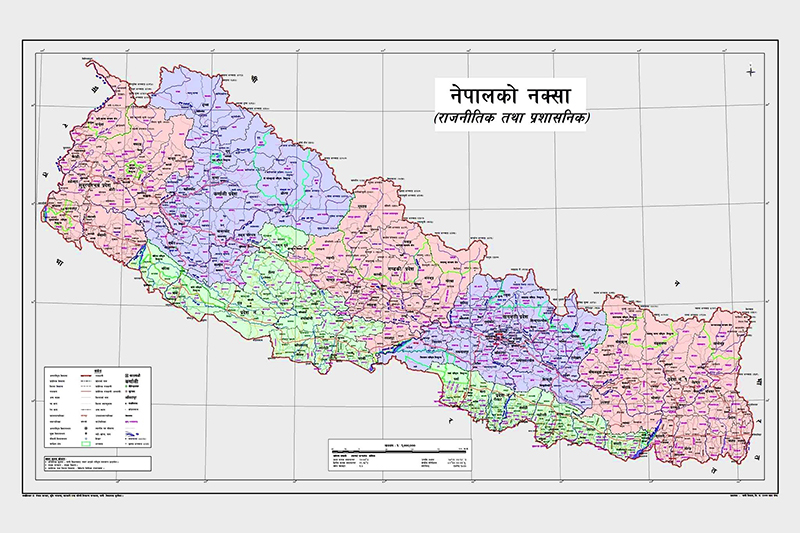Denied citizenship, stateless Nepal residents recount tales of woe
In the absence of citizenship certificates, I have not been able to get my two children’s birth registration, nor can I get COVID-19 insurance
KATHMANDU, NOVEMBER 8
More than five years after the promulgation of Nepal’s constitution, Nepali women are unable to pass their nationality to their children, rendering a large number of those residing in Nepal stateless, affecting their chances of finding jobs, pursuing higher studies, and even getting married.
Four such victims of statelessness - Arjun Sah, 32, of Mahottari, Suraj Hazare Dahal, 31, of Kaski, Priyanka (name changed), 24, of Lalitpur, and Mahesh (name changed), 27, of New Road in Kathmandu, narrated their grievances due to lack of Nepali citizenship certificates. They said at an interaction here today that they deserved to get naturalised citizenship on the basis of their mothers’ Nepali nationality, but since the new citizenship bill was in limbo, they had not been able to receive their citizenship.
Sah said he had been trying to obtain citizenship for the past eight years and had also secured the Supreme Court’s verdict in his favour, yet he was not able to obtain citizenship.
“I will soon cross the age limit to apply for government jobs. In the absence of citizenship certificates, I have not been able to get my two children’s birth registration, nor can I get COVID-19 insurance.
Life without citizenship is dull.
I have been treated like a non-person,” he told a virtual interaction organised by Forum for Women, Law and Development here today. He said if provinces could issue some sort of identity documents to people like him allowing them to obtain PAN card, driving licence, SIM card and other such benefits, until the citizenship bill was enacted into law that could help people overcome their hardship.
Suraj Hazare Dahal is another victim who is eligible to obtain Nepali citizenship but has not been able to get it due to non-enactment of the new citizenship law. Dahal’s father, who was an Indian citizen, died nine years ago. He said he went to the Ministry of Home Affairs to seek his citizenship and was told by officials there to obtain some documents from the Indian Embassy.
“When I approached the Indian Embassy, officials there told me that they would certify documents about my father but not about me and my mother because my mother got married in Nepal and I was born and brought up in Nepal,” he said. He said he was a meritorious student, but the fear of not being able to do anything due to lack of citizenship had adversely impacted his overall well-being. He said he did not want to get married because he did not want his children to share his fate. “I now realise that citizenship issue also adversely impacts people’s right to get married,” he said.
Priyanka was abandoned by her father, who is from Nepal.
She has no contact with him and does not know anything about him, including his address.
Her mother died two years ago and since then she has been living with her grandmother in Lalitpur. She has not been able to receive her graduation certificate due to lack of citizenship. “These days almost all official transactions are being carried online and they require the service seekers’ citizenship. I cannot even open a bank account without a citizenship certificate,” she lamented.
Mahesh said he wanted to study hotel management abroad, but he was unable to obtain passport due to lack of citizenship. He said all his contemporaries who wanted to pursue studies abroad had already left Nepal.
Executive Director of FWLD Sabin Shrestha said there were some discrepancies in the constitution, as on one hand it ensured sons and daughters equal lineage rights, but on the other, it deprived women of equal rights in matters of passing nationality to their children.
“We need to fight for equality in matters of citizenship right. But even those who are entitled to naturalised citizenship as per the current citizenship law have not been able to get their citizenship,” he said. He added that chief district officers who were responsible for issuing citizenship were turning down people’s applications, arguing that the new citizenship law was yet to be issued.
“It’s been five years since the new constitution has come into force. If the constitutional provision related to citizenship cannot be enforced and if eligible people are deprived of their citizenship on the phony grounds of new citizenship law not being enacted, who will provide compensation to these ‘Nepali citizens’ who are unable to obtain their citizenship for no fault of theirs?” he wondered.
Shrestha said Nepal was among 25 illiberal countries that denied women the right to pass nationality to their children. He said in some cases when CDOs had issued citizenship to applicants on the basis of court verdicts, they had been writing notes unfairly on the citizenship that the card had been issued as per court verdict. “Such practices unfairly discriminate applicants and we have filed a case at the Supreme Court seeking redressal,” he added.
Advocate Bishwajeet Tiwari told THT that Nepalgunj bench of Tulsipur High Court issued an order to the government to provide citizenship to 40 people, but CDOs issued citizenship to only 30 people.
He said one applicant who failed to obtain citizenship even after the court order was so depressed that he took his own life.
I will soon cross the age limit to apply for government jobs.






